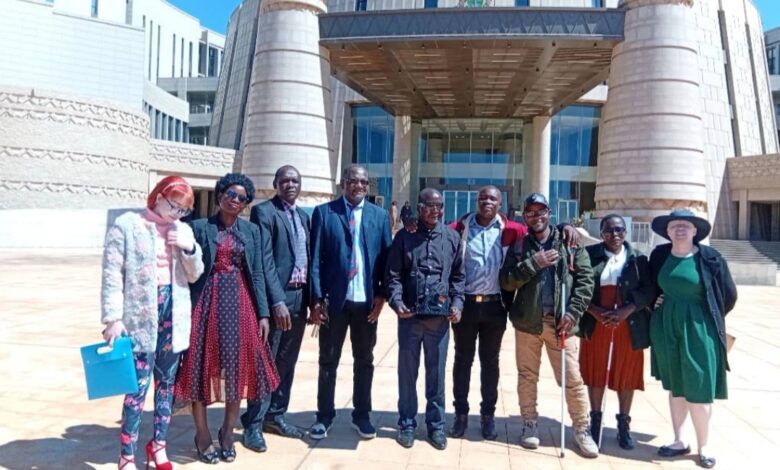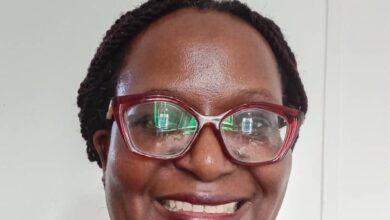3 733 citizens petition Parliament to align Disability Bill with UN standards

Nqobizwe Thebe
HARARE, Zimbabwe — In a landmark appeal to the Zimbabwean Parliament, 3 733 citizens have signed a petition (offline and online) demanding that the Persons with Disabilities Bill (H.B. 2, 2023) be realigned with the United Nations Convention on the Rights of Persons with Disabilities (CRPD).
The petition was officially presented to Parliament on May 5, 2025, by disability rights advocates namely, Nokutenda Muzuva, Suzgo Mumba, Precious Chakuma, Nomatter Nyatsanga, Paul Gumbo, Philbert Musanhu and Benina Tsuro
The petition arises in response to the National Assembly’s adoption of proposed amendments to the Bill on April 1, 2025—amendments that critics say fail to incorporate substantive input gathered during national public consultations and risk replicating shortcomings of the 1992 Disabled Persons Act. Central to the petitioners’ concerns is the shift from establishing a semi-autonomous Disability Commission to creating a National Disability Affairs Board, which they argue undermines oversight, independence, and effective enforcement of rights.
“This represents a significant regression in our efforts to align Zimbabwean legislation with international best practices,” the petition states, pointing to Article 33 of the CRPD which mandates state parties to establish independent mechanisms to monitor implementation of the Convention.
Zimbabwe ratified the CRPD and its Optional Protocol in 2013, committing to legislative reforms that reflect the rights and needs of persons with disabilities. The Constitution of Zimbabwe further guarantees citizens the right to petition Parliament, as per Section 149(1), and requires alignment of domestic laws with ratified treaties under Section 327.
The petition outlines specific concerns, including the government’s failure to adopt a robust monitoring body with clear decentralization mandates, and the lack of provisions ensuring access to education, healthcare, independent living, and political participation for persons with disabilities. Additionally, the petitioners stress the importance of meaningful public engagement, citing Section 141 of the Constitution and Article 4(3) of the CRPD, which require active involvement of persons with disabilities in legislation development.
The call to action comes after a year-long advocacy campaign that began when the Bill was gazetted on February 9, 2024. The campaign involved over a dozen organizations, including the Federation of Disabled Persons in Zimbabwe (FODPZ), the National Association of Societies for the Care of the Handicapped (NASCOH), Deaf Zimbabwe Trust, and others. Public consultations held from May 13 to 17, 2024, saw nearly 1,700 individuals with disabilities express unified support for a Disability Commission, stronger enforcement mechanisms, and a dedicated Disability Levy.
Despite this public consensus, the April 2025 amendments retained the National Disability Board—largely a continuation of the 1992 framework—and failed to incorporate critical changes demanded by stakeholders. “What was passed essentially copied and pasted provisions from the 1992 Act,” said one spokesperson, highlighting the absence of new enforcement tools and inclusion mechanisms.
In total, 3,063 handwritten signatures and 667 online endorsements were collected between April 8 and May 2, 2025. These were mobilized by 65 grassroots coordinators with disabilities across Zimbabwe’s provinces, including Harare, Bulawayo, Masvingo, and Midlands. The largest number of signatories came from Midlands Province, contributing 890 signatures, followed by Masvingo (462), and Mashonaland West (316).
The petitioners are calling on Parliament to reinstate the Commission as a statutory body, ensure inclusive and transparent engagements with Organizations of Persons with Disabilities (OPDs), operationalize a Disability Public Finance Model including a levy, and fully align the Bill with the CRPD, Sustainable Development Goals, and Zimbabwe’s National Development Strategy.
“This petition is not merely a collection of signatures. It is the echo of thousands of voices — voices that have long been sidelined — rising together to say: ‘Nothing about us without us,’” read the official statement issued during the petition’s submission.
The petition now awaits deliberation in Parliament, where advocates hope for a legislative breakthrough that reflects the will and aspirations of Zimbabwe’s disability community.





